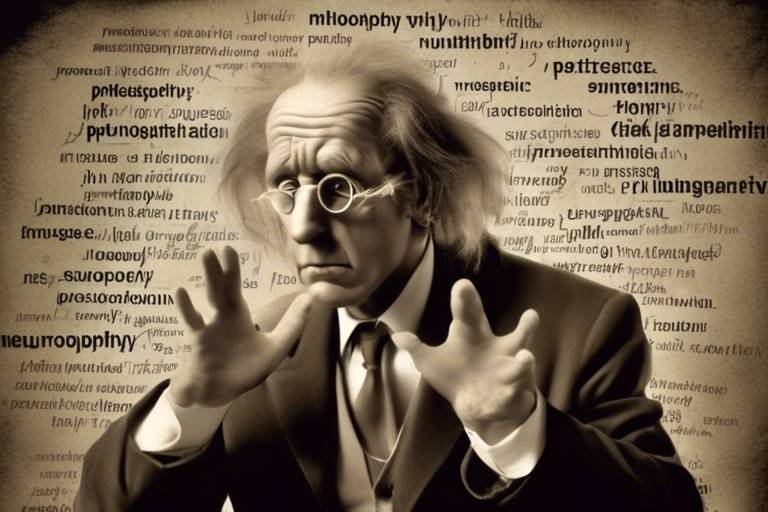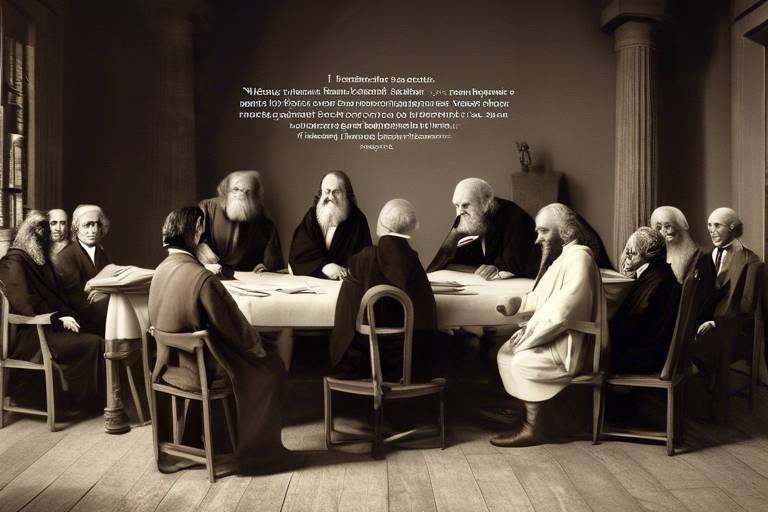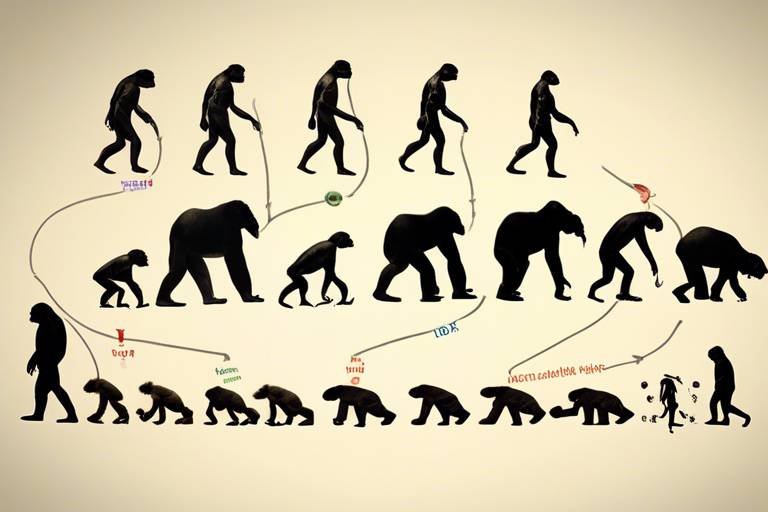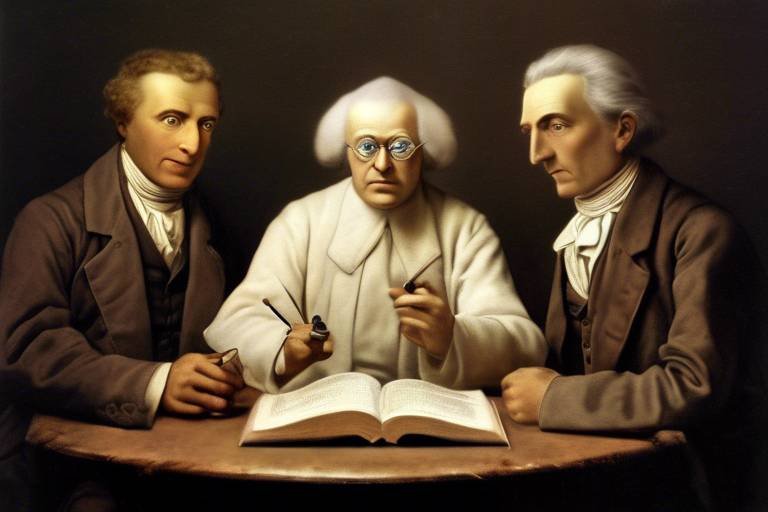The Impact of Philosophy on Particle Physics
Have you ever wondered how the abstract world of philosophy intertwines with the concrete realm of particle physics? It's a fascinating dance between ideas and empirical evidence that shapes our understanding of the universe. Philosophy, often perceived as a purely theoretical discipline, actually lays the groundwork for scientific inquiry, particularly in the field of particle physics. This article explores the profound connections between these two domains, revealing how philosophical concepts influence the interpretation of theories, the methodologies employed in research, and our grasp of the fundamental particles and forces that govern the cosmos.
At its core, philosophy encourages us to question the very essence of reality. It prompts scientists to ponder not just the "how" of particle interactions but also the "why." This questioning leads to deeper insights and innovative approaches in particle physics. For instance, consider the implications of quantum mechanics, which suggests that particles can exist in multiple states at once. This concept is not only a scientific marvel but also a philosophical conundrum that challenges our understanding of existence and observation.
Moreover, the dialogue between philosophy and particle physics extends to the ethical dimensions of scientific research. As we push the boundaries of what we know about particles and forces, we must also grapple with the moral implications of our discoveries. Questions arise regarding the use of particle accelerators, the pursuit of knowledge for its own sake, and the potential consequences of manipulating fundamental forces. This intersection of ethics and science underscores the necessity of philosophical inquiry in guiding responsible scientific practice.
In addition, the philosophical framework helps scientists articulate their findings more clearly. The language of science can often be dense and filled with jargon, making it inaccessible to those outside the field. By employing philosophical principles, physicists can clarify their theories and make them more comprehensible. This is crucial not just for academic discourse but also for public understanding and engagement with science.
As we delve deeper into the relationship between philosophy and particle physics, we uncover layers of complexity that enrich our comprehension of the universe. The interplay between these two fields not only enhances scientific inquiry but also fosters a more holistic view of reality, encouraging us to embrace both the empirical and the theoretical in our quest for knowledge.
- How does philosophy influence scientific inquiry? Philosophy provides the foundational principles that guide the methodologies and frameworks through which scientific inquiry is conducted.
- What role do thought experiments play in particle physics? Thought experiments allow scientists to explore complex concepts and challenge conventional understanding, often leading to groundbreaking discoveries.
- Why is the debate between scientific realism and anti-realism important? This debate impacts how physicists view theoretical entities and their existence beyond empirical observation, shaping the interpretation of scientific theories.

The Philosophical Foundations of Physics
Philosophy serves as the bedrock upon which the vast edifice of physics is constructed. It provides the essential principles and frameworks that guide scientific inquiry, shaping our understanding of the universe at its most fundamental level. When we delve into the world of particle physics, we find that philosophical concepts are not mere abstract ideas but rather vital components that influence methodologies and interpretations. For instance, the questions we ask about the nature of reality, existence, and knowledge are deeply rooted in philosophical thought.
To illustrate this connection, consider the notion of causality. In physics, particularly in particle physics, understanding how particles interact and influence one another is crucial. This understanding is steeped in philosophical discussions about cause and effect. How do we determine that one event causes another? Is it through empirical observation, or do we rely on theoretical frameworks that may not be directly observable? These questions highlight the intricate dance between philosophy and science, where each field informs and shapes the other.
Moreover, the concept of scientific paradigms—as proposed by philosophers like Thomas Kuhn—plays a significant role in how we perceive and interpret scientific advancements in particle physics. Paradigms dictate the norms and standards of a scientific community, guiding researchers on what constitutes valid inquiry. When a paradigm shift occurs, as seen with the advent of quantum mechanics, it not only alters the scientific landscape but also prompts a reevaluation of philosophical assumptions about the nature of reality itself.
Philosophy also invites us to ponder the ethical implications of scientific discoveries. As we explore the fundamental particles that compose our universe, we must consider the ethical ramifications of our research. For example, advancements in particle physics can lead to technologies that might be used for both beneficial and harmful purposes. This duality raises important questions: How should scientists navigate the moral landscape of their discoveries? What responsibilities do they hold towards society? Such inquiries are rooted in philosophical ethics, showcasing how philosophy and physics are intertwined.
In summary, the philosophical foundations of physics are not just ancillary to scientific inquiry; they are integral to its very essence. By examining the philosophical underpinnings of particle physics, we gain a deeper appreciation for the complexities and nuances of the universe. This exploration not only enriches our understanding but also encourages a more holistic approach to scientific inquiry, where philosophical reflection is as crucial as empirical evidence.
- What is the relationship between philosophy and physics? Philosophy provides the foundational principles that guide scientific inquiry and helps interpret complex theories in physics.
- How do philosophical concepts influence particle physics? They shape methodologies, ethical considerations, and the interpretation of scientific findings, impacting how we understand fundamental particles and forces.
- Why are thought experiments important in physics? Thought experiments allow scientists to explore complex ideas and challenge conventional understanding, bridging the gap between philosophical reasoning and scientific discovery.
- What role does epistemology play in particle physics? Epistemology addresses questions about the nature and limits of scientific knowledge, helping to validate experimental results and theoretical claims.
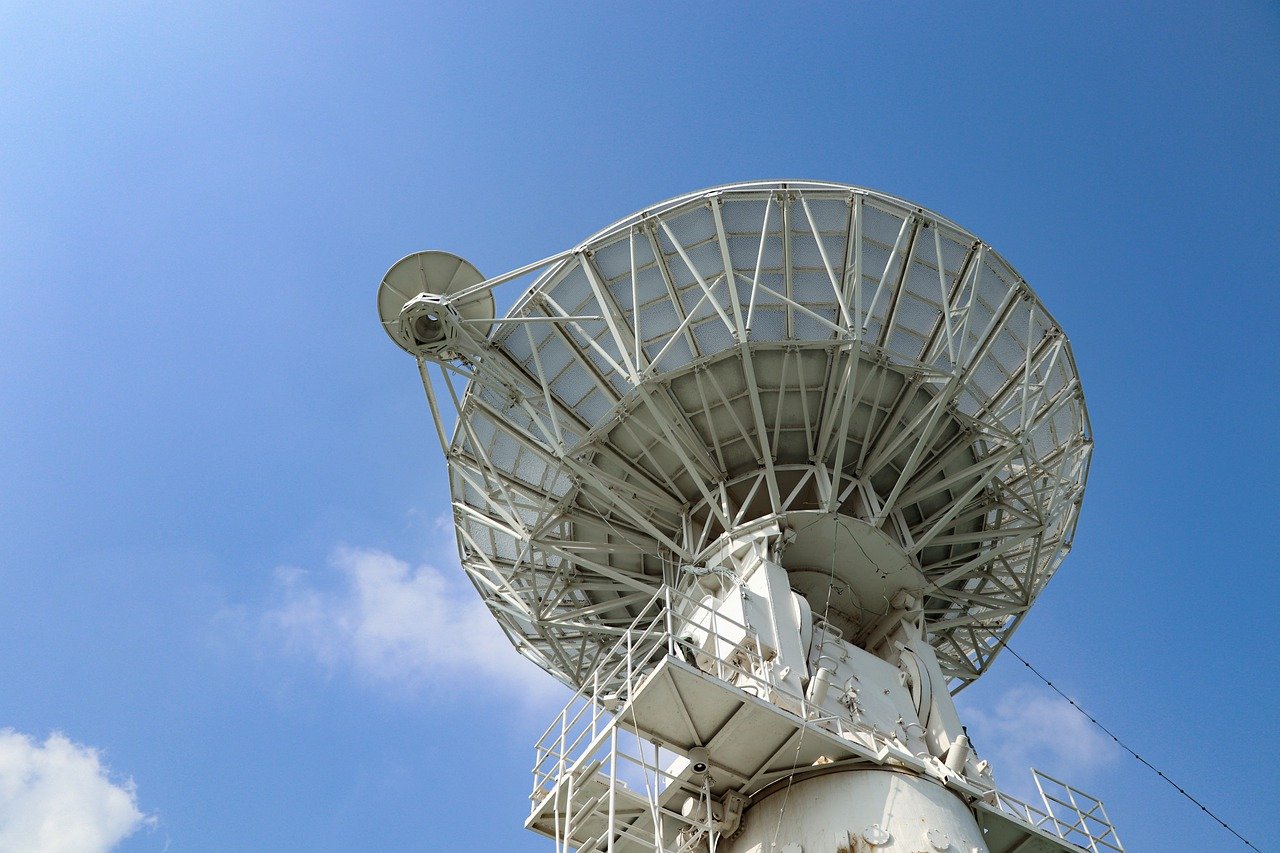
Philosophy of Science and Particle Physics
The philosophy of science plays a critical role in shaping our understanding of particle physics, a field that dives deep into the very fabric of the universe. It examines the foundational assumptions that underpin scientific theories, allowing physicists to interpret the complexities of the subatomic world more effectively. At its core, the philosophy of science invites us to question not just what we know, but how we know it. This inquiry is essential for grasping the intricate nature of particles and their interactions.
One of the key aspects of this philosophical examination is the distinction between empirical evidence and theoretical constructs. Particle physics often relies on models that describe phenomena far beyond our direct observation. For instance, consider the existence of quarks and leptons, which are fundamental constituents of matter. While these particles are crucial to our understanding of the universe, they cannot be observed directly in isolation; instead, their existence is inferred from complex experiments and interactions. This raises profound questions: What constitutes valid evidence? How do we validate the existence of something that we cannot see?
Furthermore, the philosophy of science encourages a critical examination of the scientific method itself. Particle physicists often engage in a dance between theory and experiment, where hypotheses are formulated based on mathematical frameworks and then tested through rigorous experimentation. This iterative process is not just about collecting data; it's about interpreting what that data means in the broader context of our understanding of the universe. As such, philosophical inquiry helps clarify the implications of experimental results, guiding scientists in their quest for knowledge.
To illustrate this connection, let’s delve into some fundamental philosophical questions that arise in particle physics:
- What is the nature of reality? Is reality composed of discrete particles, or is it a continuous field?
- How do we define scientific success? Is it based solely on predictive power, or does it also include explanatory depth?
- What role do theoretical entities play? Are they merely useful fictions, or do they reflect a deeper truth about the universe?
Ultimately, the philosophy of science not only enriches our understanding of particle physics but also challenges physicists to think critically about their work. It encourages a deeper reflection on the implications of their findings, fostering a culture of inquiry that is vital for scientific advancement. As we continue to explore the mysteries of the universe, the interplay between philosophical thought and scientific practice will remain a cornerstone of our quest for knowledge.

Epistemology in Particle Physics
Epistemology, the branch of philosophy concerned with the nature and scope of knowledge, plays a crucial role in the realm of particle physics. It raises fundamental questions about how we acquire knowledge, what constitutes valid evidence, and the extent to which our scientific theories can be deemed true. In particle physics, where the entities studied—like quarks and bosons—are often not directly observable, these epistemological queries become even more pressing. How do we know that these particles exist? What does it mean to say we understand them? These questions aren't just academic; they shape the very fabric of scientific inquiry.
At the heart of epistemological discussions in particle physics is the challenge of experimental validation. Scientists rely heavily on experiments to provide evidence for their theories. However, the complex nature of particle interactions often means that results can be interpreted in multiple ways. For instance, the detection of a particle in a collider experiment does not automatically confirm its properties or existence as theorized. Instead, it opens up a dialogue about the interpretation of those results, leading to philosophical debates about the reliability of our experimental methods.
Moreover, the concept of knowledge itself in particle physics is often intertwined with the limitations of our current technologies and methodologies. As we develop more advanced tools, our understanding evolves, prompting a reevaluation of what we thought we knew. This dynamic relationship between knowledge and discovery leads to a fascinating interplay where epistemology not only informs particle physics but is also shaped by its advancements. For instance, the discovery of the Higgs boson was not just a scientific milestone; it was a profound moment that challenged existing theories and our understanding of particle interactions.
In addressing the nature of knowledge, epistemology also brings forth the distinction between theoretical entities and observable phenomena. In particle physics, many concepts exist in the realm of theory long before they are empirically validated. This raises critical questions: Are these theoretical entities real? Do they exist independently of our observations? Such inquiries push physicists to think deeply about the implications of their work and the nature of reality itself.
To summarize, the role of epistemology in particle physics is multifaceted, touching upon issues of knowledge acquisition, experimental validation, and the interpretation of theoretical entities. As scientists continue to push the boundaries of what we know about the universe, the philosophical questions surrounding epistemology will remain a vital part of the discourse, enriching our understanding of both the particles that make up our world and the very nature of scientific inquiry itself.
- What is epistemology? Epistemology is the study of knowledge, including its nature, sources, limitations, and validity.
- How does epistemology relate to particle physics? In particle physics, epistemology addresses how we know what we know about particles, the evidence we use to support theories, and the implications of our experimental findings.
- Why is experimental validation important in particle physics? Experimental validation is crucial because it provides the evidence needed to support or refute theoretical claims about particles and their interactions.
- What are theoretical entities in particle physics? Theoretical entities are concepts or particles that exist in the realm of theory and may not yet have been observed directly. Examples include quarks and neutrinos.

Scientific Realism vs. Anti-Realism
The debate between scientific realism and anti-realism is a pivotal discussion in the philosophy of science, particularly in the realm of particle physics. At its core, scientific realism posits that the entities described by scientific theories, such as quarks and leptons, exist independently of our observations or theoretical frameworks. In contrast, anti-realism challenges this notion, suggesting that these entities are merely useful constructs for explaining observable phenomena rather than actual components of reality. This philosophical dichotomy influences how physicists interpret their findings and the implications of their models.
To illustrate this debate further, let's consider some key points of contention:
- Existence of Theoretical Entities: Realists argue that just because we cannot see quarks directly doesn't mean they don't exist. Anti-realists counter that our inability to observe these particles suggests they are not part of a tangible reality.
- Success of Scientific Theories: Proponents of realism often cite the success of scientific theories as evidence of their truth. On the other hand, anti-realists argue that successful predictions do not necessarily validate the existence of unobservable entities.
- Interpretation of Experimental Results: Realists may interpret experimental results as confirmations of theoretical predictions, while anti-realists might view them as mere correlations that do not imply deeper truths about the universe.
Moreover, this philosophical divide has practical implications for the field of particle physics. For instance, when considering the implications of the Standard Model—the theoretical framework that describes the electromagnetic, weak, and strong nuclear interactions—scientific realists are likely to embrace its predictions as reflections of reality. In contrast, anti-realists may view the model as a sophisticated tool that helps us navigate the complexities of particle interactions without asserting that the underlying entities truly exist.
This ongoing discourse serves as a reminder that the interpretation of scientific theories is not solely a matter of empirical evidence; rather, it is deeply intertwined with our philosophical perspectives. As scientists continue to push the boundaries of our understanding of the universe, the dialogue between scientific realism and anti-realism will undoubtedly shape the future of particle physics.
- What is scientific realism? Scientific realism is the view that scientific theories accurately describe the world and that the entities they refer to exist independently of our observations.
- What is anti-realism? Anti-realism is the position that scientific theories do not necessarily reflect an objective reality, and the unobservable entities they describe may not exist.
- How does this debate affect particle physics? The debate influences how physicists interpret their findings and the implications of their models, impacting the acceptance of various theoretical frameworks.

Conceptual Analysis of Theories
When delving into the intricate world of particle physics, conceptual analysis becomes a vital tool for scientists and philosophers alike. This analytical approach goes beyond mere equations and experimental data; it seeks to unravel the underlying meanings and implications of various theories that describe the fundamental particles and forces of the universe. It’s akin to peeling back the layers of an onion, revealing the essential truths hidden beneath the surface of scientific jargon and complex mathematics.
At its core, conceptual analysis helps clarify the language used in particle physics, ensuring that it accurately reflects the phenomena being studied. For instance, when physicists discuss concepts like superposition or entanglement, they are not just tossing around fancy terms; they are engaging in a deeper examination of what these ideas truly mean in the context of reality. This clarity is crucial for effective communication within the scientific community and for the broader public understanding of these complex subjects.
Moreover, conceptual analysis plays a significant role in the development and evolution of theories. As new experimental results emerge, existing frameworks may need to be revised or even discarded. Through rigorous analysis, scientists can assess whether a theory remains tenable or if it has outlived its usefulness. This process often involves scrutinizing the foundational assumptions of a theory and questioning whether they hold true in light of new evidence. It’s a bit like a software update for scientific theories—sometimes, you need to debug and refine to keep up with the latest findings.
One way to illustrate the importance of conceptual analysis in particle physics is through a simple table that outlines key theories and their conceptual implications:
| Theory | Key Concepts | Implications |
|---|---|---|
| Quantum Mechanics | Superposition, Uncertainty Principle | Challenges classical notions of determinism |
| Relativity | Time Dilation, Space-Time Continuum | Revolutionizes our understanding of space and time |
| Standard Model | Quarks, Leptons, Bosons | Framework for understanding fundamental particles |
In addition, the role of conceptual analysis extends to the ethical and philosophical implications of particle physics research. As we push the boundaries of our understanding, questions arise about the responsibility of scientists to communicate their findings accurately and the potential consequences of their work. For instance, how does our understanding of particle interactions influence technologies like nuclear energy or medical imaging? These are not just scientific questions; they are deeply philosophical ones that require careful consideration.
Ultimately, the interplay between conceptual analysis and particle physics fosters a richer understanding of the universe. It encourages scientists to think critically about the theories they develop and the language they use, ensuring that their work not only advances knowledge but also resonates with the philosophical inquiries that have shaped human thought for centuries. In a way, this discipline is a bridge that connects the abstract world of philosophy with the tangible realm of scientific discovery, reminding us that every particle we study carries with it a wealth of meaning and implications for our understanding of existence itself.

Metaphysics and Particle Physics
Metaphysics, the branch of philosophy that deals with the fundamental nature of reality, plays a pivotal role in shaping our understanding of particle physics. It invites us to ponder questions that go beyond empirical observation—questions about what it means for something to exist and how we can conceptualize entities that are often invisible to the naked eye. In particle physics, where particles like quarks and leptons exist at scales far removed from everyday experience, metaphysical considerations become essential.
For instance, when physicists talk about particles, they aren't just discussing tiny bits of matter; they're engaging with the very essence of existence. What does it mean for a particle to "exist"? Is it merely a mathematical construct, or does it have a real presence in the universe? This inquiry leads us to consider the implications of theories like the Standard Model, which posits a plethora of fundamental particles. Each of these particles represents not just a building block of matter but a deeper metaphysical question about the nature of reality itself.
Moreover, metaphysics helps us grapple with the concept of forces and interactions that govern these particles. The fundamental forces—gravity, electromagnetism, the weak nuclear force, and the strong nuclear force—are not mere descriptions of phenomena; they are manifestations of deeper truths about how the universe operates. The metaphysical implications of these forces challenge us to think about the interconnectedness of all things and the underlying principles that unify the cosmos.
To illustrate this connection, consider the following table that outlines some key metaphysical questions related to particle physics:
| Metaphysical Question | Implication for Particle Physics |
|---|---|
| What is the nature of existence? | Challenges our understanding of particles as either real entities or abstract concepts. |
| Do particles have intrinsic properties? | Influences how we interpret experimental results and the behavior of particles. |
| How do forces interact with matter? | Guides the formulation of theories that explain the fundamental interactions. |
In conclusion, the relationship between metaphysics and particle physics is not merely academic; it profoundly influences how scientists approach their work. By engaging with metaphysical questions, physicists can expand their understanding of the universe and refine their theories. In a sense, metaphysics acts as a compass, guiding the exploration of the unknown territories that lie at the heart of particle physics.
- What is metaphysics? Metaphysics is the branch of philosophy concerned with explaining the fundamental nature of being and the world.
- How does metaphysics relate to particle physics? Metaphysics helps physicists explore the nature of reality and existence, influencing their interpretations of particles and forces.
- Why are metaphysical questions important in science? They encourage deeper reflection on scientific theories and can lead to new insights and discoveries.
- Can metaphysical concepts be tested experimentally? While metaphysical concepts often go beyond empirical testing, they can guide the formulation of hypotheses that can be tested.
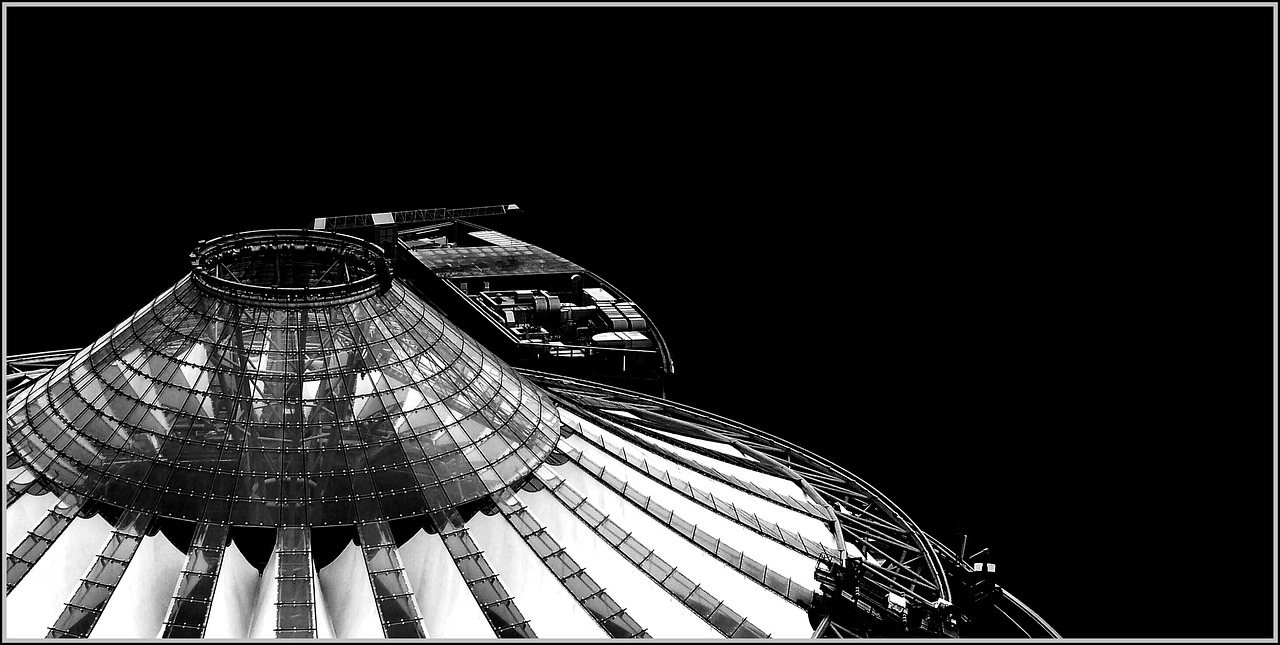
The Role of Thought Experiments
Thought experiments are like the secret sauce in the science kitchen, especially in the realm of particle physics. They allow scientists to dive into the depths of complex ideas without the need for a laboratory full of expensive equipment. Imagine trying to understand a concept so abstract that it dances just out of reach—this is where thought experiments come into play. They serve as a bridge between the philosophical realm and the empirical world, enabling researchers to visualize and conceptualize scenarios that challenge our conventional understanding of reality.
One of the most fascinating aspects of thought experiments is their ability to provoke deep questions about the nature of reality itself. For instance, consider Schrödinger's cat, a thought experiment that illustrates the peculiarities of quantum mechanics. In this scenario, a cat is placed in a sealed box with a radioactive atom, a Geiger counter, and a vial of poison. Until the box is opened, the cat is considered both alive and dead, highlighting the bizarre nature of superposition in quantum theory. This paradox not only challenges our understanding of observation but also raises philosophical questions about existence and knowledge.
In particle physics, thought experiments often help scientists grapple with the implications of their theories. For example, Einstein’s thought experiments about relativity reshaped our understanding of time and space. He famously imagined riding alongside a beam of light, leading him to revolutionary conclusions about the nature of light and its relationship to time. These mental exercises are crucial for developing theoretical frameworks that govern the behavior of fundamental particles and forces.
Moreover, thought experiments serve as a catalyst for scientific innovation. They encourage physicists to think outside the box and explore the boundaries of what is known. When faced with perplexing results from experiments, scientists can utilize these philosophical tools to reassess their interpretations and consider alternative explanations. This iterative process can lead to groundbreaking discoveries and advancements in our understanding of the universe.
The integration of thought experiments into scientific practice also has profound implications for how we interpret experimental findings. By contemplating the philosophical underpinnings of their work, physicists can better appreciate the limitations of their observations and the theories they construct. This reflective approach fosters a more nuanced understanding of the complexities of particle physics, ensuring that scientists remain open to new ideas and interpretations.
In essence, thought experiments are not just idle musings; they are essential components of scientific inquiry that push the boundaries of our understanding. They challenge us to question our assumptions and to explore the profound mysteries of the universe. As we continue to unravel the complexities of particle physics, the role of these philosophical tools will undoubtedly remain pivotal in shaping our scientific landscape.
- What is a thought experiment? A thought experiment is a mental exercise that explores the consequences of a principle or theory, often used in philosophy and science to illustrate complex ideas.
- Why are thought experiments important in particle physics? They help scientists conceptualize and visualize complex scenarios, challenge existing theories, and provoke deeper understanding of fundamental concepts.
- Can thought experiments lead to actual scientific discoveries? Yes, many scientific breakthroughs have been inspired by thought experiments that prompted researchers to explore new ideas and test unconventional theories.

Famous Thought Experiments in Physics
Thought experiments have long served as a bridge between the abstract realms of philosophy and the concrete world of physics. They allow scientists to explore complex ideas without the constraints of physical experimentation. One of the most famous thought experiments is Schrödinger's Cat, proposed by physicist Erwin Schrödinger in 1935. This scenario involves a cat placed in a sealed box with a radioactive atom, a Geiger counter, and a vial of poison. According to quantum mechanics, until the box is opened, the cat is simultaneously alive and dead, illustrating the concept of superposition. This paradox challenges our understanding of reality and observation, prompting deep philosophical questions about the nature of existence and measurement.
Another iconic thought experiment is Einstein's Train, which delves into the principles of relativity. Imagine a train moving at the speed of light with a light beam emitted from the center towards the front and back. Observers on the train and those standing on the platform perceive the light beam differently, showcasing how time and space are relative rather than absolute. This thought experiment not only revolutionized physics but also influenced how we perceive time and motion, leading to profound implications for our understanding of the universe.
These thought experiments are not just intellectual exercises; they have real implications for scientific inquiry. They challenge physicists to think critically about the theories they develop and the assumptions they make. For instance, the implications of Schrödinger's Cat extend into discussions about the observer effect in quantum mechanics, while Einstein's Train raises questions about simultaneity and the nature of time itself.
Moreover, thought experiments can lead to new hypotheses and experimental designs. They encourage scientists to visualize scenarios that may not be physically feasible but can yield insights into the fundamental laws of nature. For example, concepts like quantum entanglement and black holes have emerged from such philosophical inquiries, pushing the boundaries of what we understand about particles and forces.
In summary, famous thought experiments like Schrödinger's Cat and Einstein's Train not only serve as fascinating intellectual puzzles but also play a crucial role in shaping the landscape of particle physics. They invite us to ponder profound questions about reality, knowledge, and the universe itself, emphasizing the vital connection between philosophy and science. As we continue to explore the mysteries of the cosmos, these thought experiments will remain essential tools for deepening our understanding of the fundamental principles that govern our world.
- What is a thought experiment? A thought experiment is a hypothetical scenario used to explore the consequences of a theory or principle without the need for physical experimentation.
- Why are thought experiments important in physics? They help scientists visualize complex concepts, challenge existing theories, and inspire new hypotheses.
- Can thought experiments lead to real scientific discoveries? Yes, many thought experiments have led to significant advancements in scientific understanding and have influenced experimental designs.

Implications for Scientific Practice
When we delve into the implications of philosophy on scientific practice, especially in the realm of particle physics, we uncover a fascinating interplay between abstract thought and empirical investigation. Philosophical inquiry doesn't just sit on the sidelines; it actively shapes how scientists approach their work, guiding them in their quest for understanding the universe at its most fundamental level. One of the most significant impacts is the way it encourages scientists to reflect on the assumptions underlying their experiments and theories. This reflection is not merely academic; it has real-world consequences for how research is conducted and interpreted.
For instance, the integration of philosophical thought experiments into the scientific method allows physicists to explore scenarios that might be impossible to recreate in a laboratory setting. These thought experiments challenge conventional wisdom and push the boundaries of our understanding. Consider the famous Schrödinger's cat paradox. While it may seem like a whimsical idea, it raises profound questions about superposition and observation—core concepts in quantum mechanics that have direct implications for particle physics. By contemplating such scenarios, scientists can better grasp the complexities of their field and consider the implications of their findings on a broader scale.
Moreover, the philosophical debate between scientific realism and anti-realism plays a crucial role in shaping scientific practice. Realists argue that the entities described by scientific theories, such as quarks and leptons, exist independently of our observations. In contrast, anti-realists contend that these entities are simply useful fictions that help us make sense of our observations. This debate influences how physicists interpret their data and the conclusions they draw from their experiments. If scientists lean towards realism, they may be more inclined to pursue theories that posit the existence of unobserved particles. On the other hand, an anti-realist stance might lead to a more cautious approach, questioning the validity of theoretical constructs that lack direct empirical evidence.
In addition to these philosophical debates, the practice of conceptual analysis plays a vital role in ensuring that the language used in particle physics accurately reflects the phenomena being studied. By dissecting the meanings and implications of various theories, scientists can avoid misinterpretations that could lead to flawed conclusions. This process of clarification not only enhances communication among physicists but also fosters collaboration across disciplines, as clearer language allows for more effective dialogue between physicists and philosophers alike.
Ultimately, the implications of philosophy for scientific practice in particle physics are profound. They encourage a culture of critical thinking and introspection, prompting scientists to question their methodologies and the interpretations of their results. This reflective practice is essential in a field characterized by rapid advancements and complex discoveries. As we continue to explore the depths of the universe, the marriage of philosophy and science will undoubtedly remain a cornerstone of our understanding, guiding us through the intricate web of particles and forces that shape our reality.
- How does philosophy influence scientific inquiry?
Philosophy provides the foundational principles that guide scientists in their methodologies, encouraging critical thinking and reflection on underlying assumptions. - What are thought experiments, and why are they important?
Thought experiments are hypothetical scenarios that allow scientists to explore complex concepts. They are crucial for challenging conventional understanding and advancing theories in particle physics. - What is the significance of scientific realism and anti-realism?
This debate influences how scientists view theoretical entities and their existence, impacting the interpretation of experimental results and the direction of research. - How does conceptual analysis benefit particle physics?
Conceptual analysis clarifies the meanings and implications of theories, ensuring that scientific language accurately reflects the phenomena being studied, which aids in communication and collaboration.
Frequently Asked Questions
- What is the connection between philosophy and particle physics?
Philosophy plays a crucial role in shaping the foundational principles that guide scientific inquiry in particle physics. It influences the methodologies and frameworks used to understand and develop theories about fundamental particles and forces in the universe.
- How does epistemology relate to particle physics?
Epistemology, the study of knowledge, is essential in particle physics as it addresses questions about the nature and limits of scientific knowledge. It helps physicists evaluate the validity of experimental results and understand the implications of their findings.
- What is the debate between scientific realism and anti-realism?
This debate concerns how particle physicists perceive theoretical entities like quarks and leptons. Scientific realism posits that these entities exist independently of our observations, while anti-realism suggests that such entities are merely useful constructs for explaining observations.
- Why are thought experiments important in particle physics?
Thought experiments, often rooted in philosophical inquiry, are powerful tools that allow scientists to explore complex concepts and scenarios. They challenge conventional understanding and help clarify the implications of theoretical frameworks in particle physics.
- Can you give examples of famous thought experiments in physics?
Yes! Notable thought experiments include Schrödinger's cat, which illustrates the peculiarities of quantum mechanics, and Einstein's relativity, which challenges our understanding of time and space. These examples highlight the interplay between philosophical reasoning and scientific discovery.
- How does conceptual analysis benefit particle physics?
Conceptual analysis helps clarify the meanings and implications of theories in particle physics. By ensuring that scientific language accurately reflects the phenomena being studied, it aids in the effective communication of complex ideas among physicists.
- What metaphysical considerations influence particle physics?
Metaphysical considerations, such as the nature of reality and existence, significantly influence how physicists conceptualize particles and the fundamental forces governing their interactions. These philosophical insights shape the interpretations of experimental findings.




